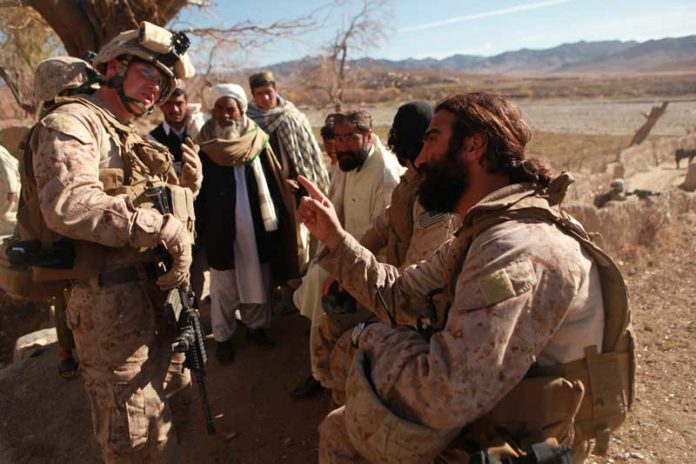Taliban insurgents tortured and killed an Afghan interpreter working for the United States military who died while waiting four years for a U.S. visa to escape the war torn country.
In an immediate sense, the killing will make it more difficult for U.S. forces to recruit interpreters in Afghanistan. The longer-term concern is the fate awaiting current translators for helping the U.S. military as American forces in Afghanistan are drawn down over the coming year.
The interpreter, Sakhidad Afghan, worked for the U.S. Marines and Air Force since 2008 and applied for a U.S. visa under a program for at-risk military translators. He was still on the waiting list when Taliban insurgents kidnapped him from an outdoor market this past spring and executed him in the back of a trailer truck.
This problem isn’t new.
Currently, the U.S. military is working with thousands of Afghan interpreters who are living under threat of death at the hands of Islamic militants and remain in a state of bureaucratic limbo while waiting for the visas they were promised.
According to Arif Rahmani, a member of the Afghanistan Parliament who spoke with Afghan’s family, Afghan was between jobs after the U.S. closed his base in Helmand province in late 2014. According to his brother, Afghan left for Herat, a city in western Afghanistan.
The Afghan National Army found his body in March in the Farah river region between Helmand and Herat. News of the murder swept through the Afghan interpreter community increasing concern about retribution attacks from the Taliban.
“Taliban killed Arif by chasing him. I am sure they are tracking me too and they will kill me also one day,” said a translator who worked with Arif and has also been waiting for a U.S. visa since 2011. His name is being withheld.
According to Alana Goodman writing in the Washington Free Beacon, the State Department has recently instituted reforms to the Special Immigrant Visa process to deal with the number of visa applications that have moved significantly higher than prior years.
The Iraqi Refugee Assistance Project (IRAP), a group that advocates for Afghan and Iraqi linguists, said Afghan’s death shows the risk translators face when their applications stall.
“This horrifying incident is unfortunately just one example of how each passing day is another mortal threat to our Iraqi and Afghan allies,” said Katherine Reisner, national policy director at IRAP.
“It shows our veterans’ dedication to their allies overseas, and how much hope they place in the SIV program,” she added. “We fail our veterans when the SIV program fails. And it is a call to action for the Departments of State and Homeland Security to act justly and expeditiously on all SIV applications.”
Washington Free Beacon managing editor Aaron MacLean, who served as a former Marine officer who worked with Afghan when the interpreter was assigned to his rifle company said:
“I just remember him being a good young man who did his job well, was as brave as any Marine, and came under fire as much as any Marine in Marjah”






























